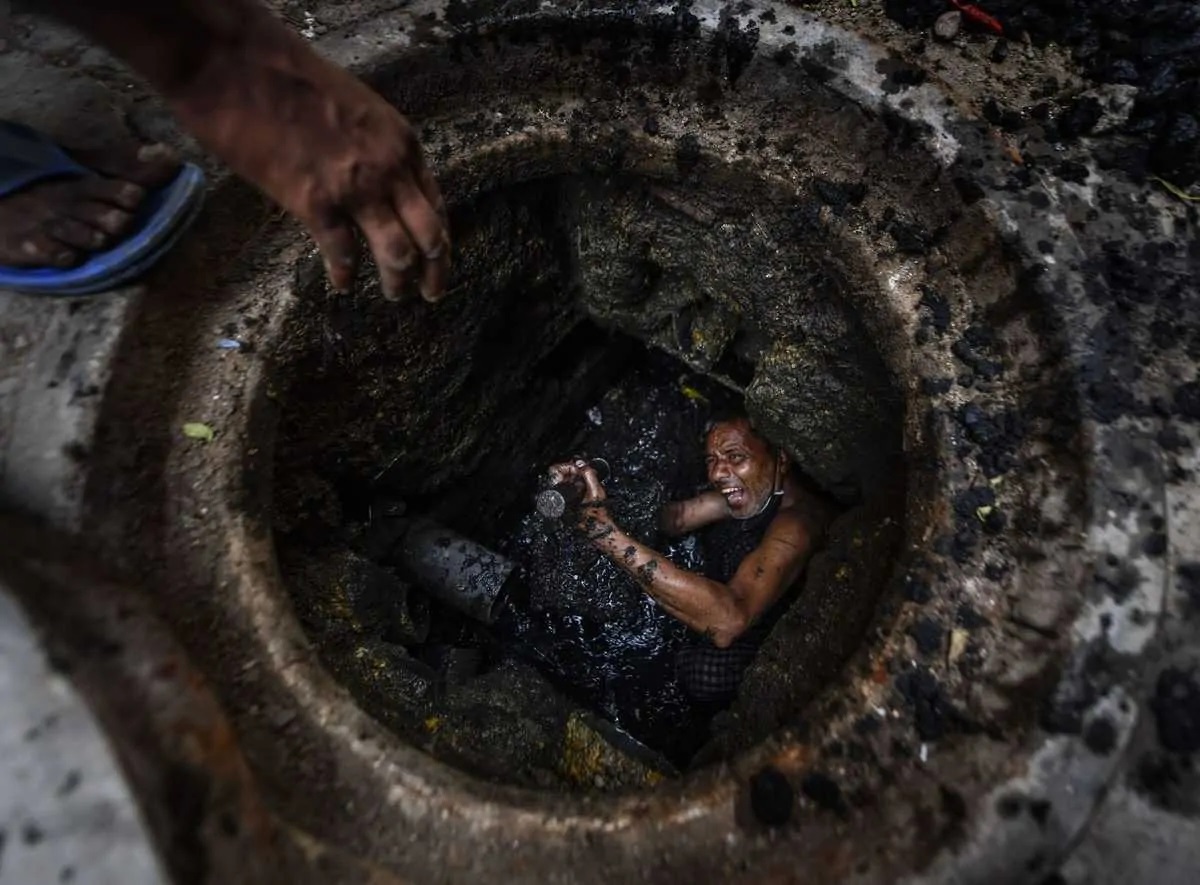Gujarat reported as many as 58 sanitation worker deaths over the last five years alone up to November 30, 2023. No data however, is available on the communities of the sewer workers (Dalit/ST Minority groups) according to responses provided to specific questions in Parliament.
On December 13, during the ongoing winter parliamentary session, Mohammed Nadimul Haque, an All India Trinamool (TMC) member of parliament in the Rajya Sabha, raised several questions regarding deaths caused due to cleaning of sewers and septic tanks. Ramdas Athawale, Minister of State in the Ministry of Social Justice and Empowerment presented the reply.
Athawale, when questioned about the government’s awareness of the tragic deaths of four migrant workers in Gujarat while cleaning septic tanks, confirmed that the Gujarat government had indeed informed them about the incident but was vague about the compensation provided.
Further inquiries into the specific count of deaths in Gujarat revealed that, there were 58 reported deaths in the state within the last five years up to November 30, 2023. However, when probed about whether the majority of these fatalities were from marginalized communities such as Dalit/ST/Minority groups, Athawale stated that there is no centralised data available to indicate such a demographic trend.
The absence of both comprehensive data on such fatalities as also inconsistencies in compensation paid, across India, remains concerning. The disclosure of 58 reported deaths in Gujarat alone within the last five years underscores the urgency of addressing this issue.
The session highlighted the need for robust measures to prevent these tragic deaths and ensure the safety and dignity of those involved in this hazardous occupation. Moving forward, there is a crucial call for concerted efforts, policy interventions, and improved data collection mechanisms to address this pressing humanitarian concern and prevent further loss of life in these precarious work environments.
However, the absence of centralized data regarding the demographics of these victims, particularly those from marginalized communities, presents a significant challenge in understanding the full scope of this problem and implementing targeted interventions to safeguard vulnerable groups.
The complete answer can be viewed here:
Related:
Manual Scavenging: 4 die cleaning septic tank in Surat
Zero reported deaths due to manual scavenging: Ramdas Athawale

